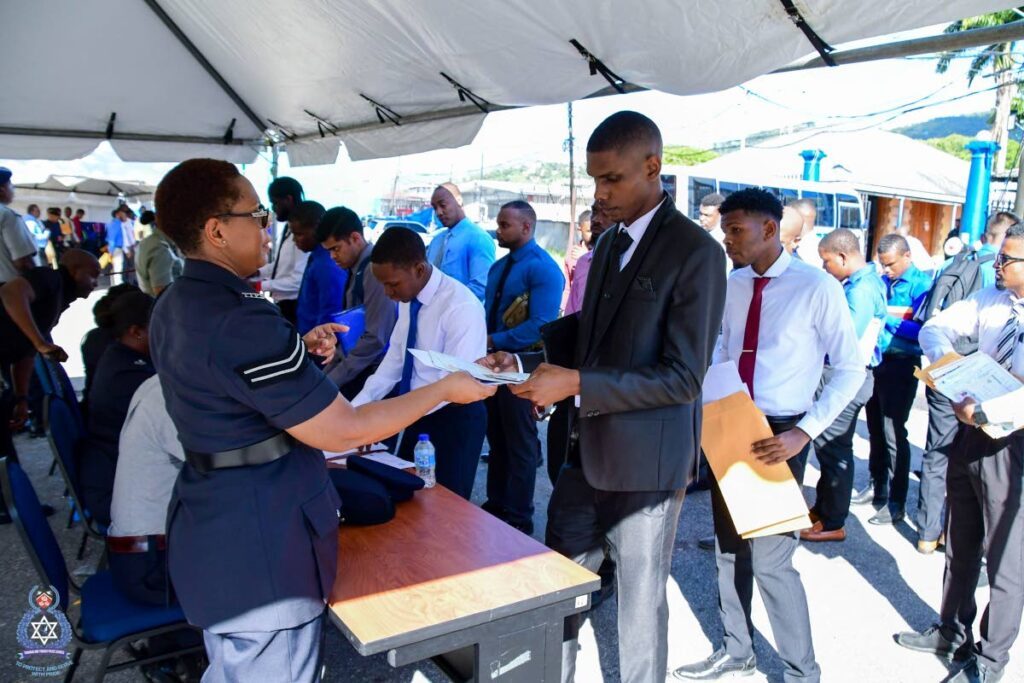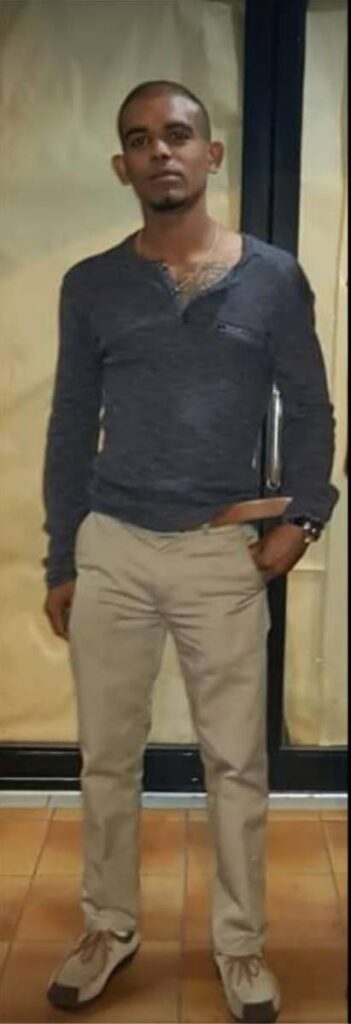Court lowers height requirement for male cops

POLICE Commissioner Erla Harewood-Christopher has been ordered to reopen the screening process for police recruits so that males shorter than 167 centimetres can apply.
Justice Robin Mohammed made the order on January 8. In a landmark ruling, the judge held that the police service regulation which restricted men below 167 centimetres from applying to the police service was discriminatory.
He said the regulation impugned the rights to equality of treatment by a public body and protection of the law and was not “saved law” preventing it from being challenged. Mohammed also declared regulation 3 (1) (f) was incompatible with the Constitution and granted an order of mandamus for the State to take all steps to exclude that height requirement from the recruitment process.
Regulation 3(1)(f) which deals with recruitment says in the case of a male, a trainee must be of good physique and at least 167 centimetres tall.
In ordering the commissioner to reopen the recruitment process, Mohammed said he was cognisant that the police service was engaged in recruitment at the beginning of the year to fulfil a Cabinet mandate to increase the police force by 1,000 for 2024, a tripling of the normal intake.
The judge’s order will now widen the pool of prospective candidates applying to become police officers.
In his budget speech in October 2023, Finance Minister Colm Imbert spoke of the introduction of 1,000 new recruits for 2024, a move welcomed by the Police Service Social and Welfare Association.
The judge’s orders were made in a ruling in favour of Renaldo Marajh, who wanted to apply to the police service but could not because of his height.
For his distress and inconvenience, Marajh will receive a total of $400,000 to be paid by the State, which also has to pay his legal bills fit for one senior counsel and two junior counsel.
Mohammed’s declaration follows a similar ruling by another judge in October 2023, which declared the police service’s tattoo policy for recruits unconstitutional.
Marajh was represented by Anand Ramlogan, SC, Kent Samlal and Vishaal Siewsaran.
In the claim before Mohammed, Marajh, 31, of Ben Lomond Village, Williamsville, said he was 160 centimetres tall.
In October 2020, he applied to the police service but the Police Academy told him he was not eligible because he did not meet the height requirement, so was “disqualified by law.”
He said the regulation was unfair and discriminatory.
“I am a healthy, fit young man who would like to contribute to and serve my country yet, I am disqualified from doing so on account of my height.
“It was always a dream and ambition of mine to become a police officer to protect and serve the citizens of my country.
“I feel frustrated and distressed when I see police officers who are not physically fit with pot bellies and the like wearing the very uniform that I have been deemed incapable and unworthy of wearing purely on account of my biological and physical features.”

Marajh said he was of mixed ethnicity and his father and brother, both prison officers, were tall, but he did not inherit this physical characteristic. Instead, he said he had his mother’s shorter height.
He also said if he were a woman he would have qualified, since the minimum height requirement was 150 centimetres for females.
“There is no reasonable and lawful justification for such a discriminatory requirement given the diverse nature of the various divisions and departments in the TTPS and the disproportionate disqualification of a significant part of the population from being considered for recruitment into the TTPS.
“This is particularly troubling in a multi-racial society such as ours as it will have a disproportionate impact on persons who, due to their ethnic origin, are of medium build,” his claim contended.
After Marajh’s filed his claim in December 2023, he sought an injunction to stop the January 2024 screening process.
In opposition to the injunction application, Harewood-Christopher said there was no record of Marajh applying to join the police service, nor could it suspend the screening and recruitment.
“For some time now, the TTPS has been faced with an increase in crime which has resulted in citizens clamouring for greater police presence and action,” she said on January 12.
She provided a breakdown of serious crimes reported and detected for 2012-2023, to emphasise the crime scourge, increasing crime rate and the need for additional police officers.
The commissioner put the shortage of constables at 1,400. The approved sanctioned strength for constables was 5,778 and the actual strength is 4,378.
Harewood-Christopher also said 858 constables were promoted in September 2023, leaving the rank of constables “further severely depleted.” She also mentioned Imbert’s budget statement of the Government’s concern about the “untenable” murder rate, crime and violence.
She also said in December 2023, advertisements were put out for the screening of candidates in January and other recruitment exercises will be done during the course of the year.

Acting Supt Curtis Simmons, in charge of the academy, said recruitment was governed by the regulations.
“If an applicant does not satisfy the requirements of regulation 3(1), the applicant will not proceed to further steps in the recruitment process.”
He said the height requirement was relevant at the agility test stage, designed to assess a trainee’s physical strength, muscular endurance, co-ordination and agility.
Simmons provided details of the test and added that it posed a greater challenge for those who “just meet or are a little over” the height requirement, leading to a greater risk of injury. According to Simmons, it was important for a police officer to use his physical presence and strength to de-escalate potentially dangerous and violent situations and people.
“His presence plays a significant role (at a scene)...Taller officers are more imposing figures.”
He also said the recruitment process was costly, with training one male recruit amounting to $88,804.02 and $90, 427.02 for a woman.
At the trial, the judge also considered “expert evidence” from two doctors as well as Prof Ann Marie Bissessar, senior lecturer in public-sector management and administration at UWI.
Dr Rishi Jagdeo said Simmons’s personal observations were not supported by any survey or anthropometric study. Anthropometry is the science that defines physical measures of a person’s size, form, and functional capacities.
“These observations have no real scientific or medical basis. There is no psychological evidence as to what height people would consider ‘imposing’ such that they would be less likely to resist arrest."
The Attorney General was represented by Vanessa Gopaul, Janine Joseph and Anala Mohan.

Comments
"Court lowers height requirement for male cops"